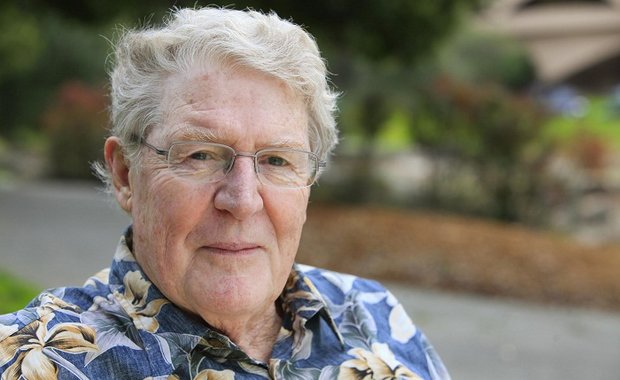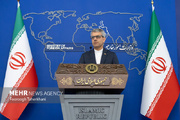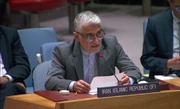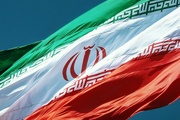Tehran hosted for two days the 6th International Conference on Palestinian Intifada on 21-22 February, 2017. Over 500 foreign guests representing 80 countries attended the event, with speeches from high-ranking officials such as Lebanese, Omani, and Malaysian parliament speakers in support of the Palestinian cause that has been regrettably pushed to the margins by the regional and international community in the past few years.
Palestine has gone through three Intifadas (Palestinian uprisings against the Israeli occupation of the West Bank and Gaza) already. The first, known as Rock Intifada, dates back to 1987, which was driven by harsh economic, political, social and security pressures imposed by the Israeli regime on Palestine and was triggered after an Israeli truck driver ran over a group of Palestinian workers on December 9, 1987 in Gaza and caused Palestinians’ anger and frustration at their dire situation to erupt. The first Intifada lasted for six years before it resulted in the Oslo accord.
The second Intifada, known as Al-Aqsa Intifada, began in 2000 after he then Israeli Minister of Settlement, Ariel Sharon, trespassed the al-Aqsa Mosque compound and declared the Oslo accord as over. The second Intifada which drew in support of Arab and Islamic states for the Palestinian cause continued until 2005 when Israel retreated from the Gaza Strip.
The third Intifada, known as Quds Intifada, erupted in October 2015 and has continued to date. Palestinians became exceedingly concerned as their cause was marginalized in the chaos after ISIL and as Arab states started to normalize relations with Israel. Meanwhile, the Israeli regime continued to expand settlements on the West Bank, intensified the siege on Gaza, and gained further support from the West for its policies. The situation started to look bleak and despairing for Palestinians who were in great need of putting their cause back on the forefront of international agenda. Tehran’s conference in support of Palestine’s resistance against Israeli occupation was an attempt to make the Palestinian cause relevant again.
On this occasion, Mehr News Agency reached out to Conn M. Hallinan, a columnist for Foreign Policy In Focus, who is of the firm opinion that the two-state solution in the Israeli-Palestinian peace process is already a lost cause and the only viable way to hold Israel back from its aggressive moves against Palestine and advance the Palestinian agenda is a “successful international boycott” that would isolate and damage Israel.
The following is Mehr News’ exclusive interview with Mr. Hallinan who shared his views with us on the Palestinian situation, the unpredictability of Trump’s foreign policy, and the need for an international boycotting campaign against Israel as the only way that could prevent the regime’s advancing occupation and political and economic pressures against Palestinians:
What is your take on last Wednesday’s joint press conference of US President Donald Trump and Israeli Prime Minister Netanyahu? Where exactly does Donald Trump stand on Israel-Palestine conflict?
It is hard to figure out exactly what Trump’s foreign policy is going to be like. He started off threatening China, pledging to dump the nuclear pact with Iran, and applauding the potential breakup of the European Union. He has since modified those stands, although his hostility to Iran is worrisome. Trump says he backs the two state solution, but then so does Netanyahu and we know he doesn’t. The Israeli prime minister says what he does because he knows that is what the rest of the world wants, and what a majority of Americans support. But it is all smoke and mirrors. The problem with Trump is that he is deeply ignorant on foreign policy and has the attention span of a gnat. Trump is impossible to figure out because he just shoots his mouth off. But while I don’t think Trump is going to abandon the two-state solution, I also don’t think that he will push the Israelis on it.
How probable or improbable is a two-state solution in the Israeli-Palestinian peace process? Can this really help the Palestinian issue, and if not what are other alternatives that could?
The two-state solution is deeply damaged, maybe fatally. The settlements have cut up the West Bank into a series of cantons – more like Bantustans in the old apartheid South Africa – and I just can’t envision how such a state could exist independently. The problem is that if it doesn’t happen, then the Palestinians will continue to live under military occupation. The Israelis are moving toward a one-state solution that would mean one of two things: either the expulsion of the Palestinians to Jordan, or an openly apartheid regime with the Palestinians as second-class citizens. My own feeling is that there should be a viable Palestinian state, which will require removing many of the settlements, a divided Jerusalem, and some kind of compensation (which the international community can help with). Or one secular one state. The latter may be best, but I am not convinced that the Palestinians want to live with the Israelis. The occupation has – is – brutal.
There is this growing concern among Palestinians that Trump’s administration is going to endorse Israeli settlement program and the move of US embassy to Jerusalem. How would the embassy relocation impact the situation for Palestine, Israel and the US?
If the Palestinians lose Jerusalem, they lose 60 percent of their economy and that is a killer. Trump has made mild – very, very mild – protests about the settlements and doesn’t seem to be in a hurry to move the embassy. If he does, Israel and the US will find themselves isolated internationally, and the Israelis do fear that. A successful international boycott would severely damage Israel. The Europeans have already dealt Tel Aviv some serious blows. But again, if Jerusalem is not split between the two parties there is no possibility of a viable Palestinian state.
Why Palestine is no longer the foremost issue of the Muslim community? How come certain Arab countries are not supportive of the Palestinian cause and instead seek to normalize relations with Israel?
Part of the problem is that the US has successfully destroyed Libya and Iraq, and smashed up Syria. The only really independent voice in the Middle East these days is Iran, and to a certain extent, Turkey (although Turkey shares much of the responsibility for the Syrian war). The [Persian] Gulf monarchs are looking nervously over their shoulders at their own people. Saudi Arabia is a mess economically and it is in the middle of a disastrous intervention in Yemen. The US and Israel are their natural allies, since the last thing either wants are independent voices in the Middle East. I have never thought this was about religion, but rather religion as a metaphor for power and control. The attacks on the Shias may take the form of religious strife, but it is really aimed at keeping Iraq and Syria divided and Iran marginalized. Egypt depends upon Saudi Arabia to keep it afloat, so it will support whatever the Saudis do, except something really stupid, like invading Yemen. The Egyptians are too smart to get involved in that debacle, plus they tried that in the 1970s and found out what every common sense person knows, that there are two places you don’t want to invade: Yemen and Afghanistan.
I would also point out that most Arab countries did very little for the Palestinians besides make speeches.
Tehran is hosting a two-day international conference on Palestine in a show of solidarity with the oppressed nation in the face of Israel occupation. How do you assess the overall impact of such events on improving Palestine’s situation?
The most effective way to move the Palestinian agenda forward is through international pressure, in particular the boycott campaign. Israel should be treated the same way South Africa was and isolated internationally.
Meanwhile, Paris recently hosted a Peace Conference on Palestine on Jan. 15, where top official representations from 70 countries attended expect for representatives from the Israeli government and the Palestinian Authority. The conference was slammed by Netanyahu as futile while Palestine welcomed the multilateral approach. How do you evaluate the impact of this conference especially in the light of the EU’s apparent friction with Trump’s various stances?
The EU is very important here. Europe has supported the Israeli occupation through weapons sales, economic aid, and trade. The EU is the largest trade group on the planet with the greatest Gross Domestic Product production in the world. If the EU follows through and takes on Israel’s violation of international law, that could make a major difference. So my view is that every international action makes a difference.
Conn Hallinan is a Foreign Policy In Focus columnist living in Berkeley, California. He holds a PhD in Anthropology from the University of California, Berkeley. He oversaw the journalism program at the University of California at Santa Cruz for 23 years, and won the UCSC Alumni Association’s Distinguished Teaching Award, as well as UCSC’s Innovations in Teaching Award, and Excellence in Teaching Award. He was also a college provost at UCSC, and retired in 2004. He is a winner of a Project Censored “Real News Award”.
Interview by: Marjohn Sheikhi



 13:55 - 2017/02/26
13:55 - 2017/02/26





















Your Comment